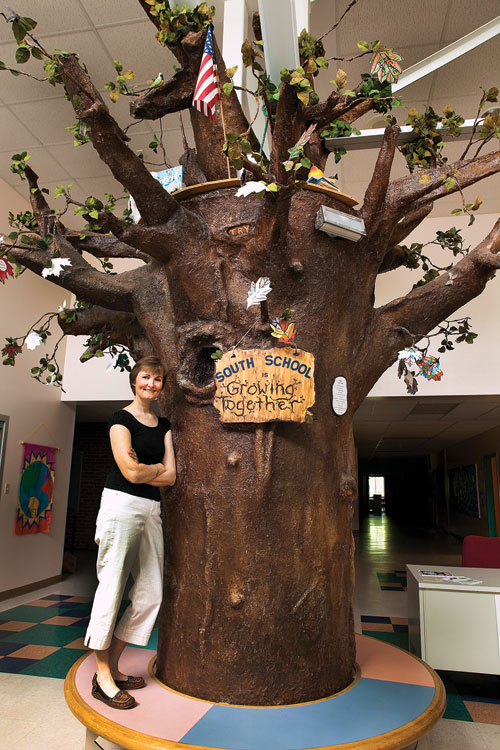Going to the Gold

In her elementary-education training, Kristen Harmon learned the power of positive reinforcement – a principle now having a ripple effect for good among her own children.
At BYU I learned that the gold standard for research-paper sources is peer-reviewed academic journals. At the time, this was an annoyance since I felt a quick web search could lead me to all I needed to know. Now I feel differently. Every day via social media I encounter claims supposedly backed by science. Fortunately, my education taught me to question the validity of sources and check references. I have gone back several times to the gold standard to help me to distinguish actual research from pseudoscientific claims. These discoveries make me grateful for my education and professors who helped me understand where to turn for solid information.
—Denise Kesler Olson (BA ’06), Gilbert, Ariz.
Reinforcement Magic
As an elementary-education major, I attended a training meeting where a speaker taught that the behavior you attend to first is the behavior you reinforce. According to the speaker, if I ask a student to stop talking, then I am actually reinforcing talking in my classroom. However, if I recognize another student for working quietly and staying on task, then I am reinforcing being quiet and staying on task.
I was sure she was wrong. But back to the classroom I went, and there I tested her assertion. It worked like magic.
Today that principle gets used a lot in our home. We begin each family home evening by recognizing family members’ good behaviors. Soon the whole family is trying to do the good thing that was mentioned. When teaching in Primary sharing time, I’ll look for any one child with folded arms to praise and applaud, and soon the whole room is following suit.
—Kristen Tanner Harmon (BS ’03), Burbank, Calif.
Elementary Programming Practice
As an electrical-engineering student, I was required to take a few computer-science classes. I enjoyed learning the basics but knew that I was just scratching the surface. I never thought much more about it until 10 years later, when my fourth-grader needed to practice multiplication facts each night. There were a few websites she could use, but they were lacking. Suddenly, the thought came that I could write a Java program to do this in no time! I had to refresh a little, but that night, I presented her with her very own math practice program. She was quite pleased to have a program of her own, with her name on it. And I was happy to give her exactly what she needed. I still don’t know much about programming, but I remembered enough to be useful!
—Dan W. Baker (’02), Keyport, Wash.
Share Your Story
How has your BYU education helped you better serve others in your daily, nonprofessional life? Send us stories of the specific things you learned at BYU that have proven helpful in your home or community. BYU Magazine pays $50 for publishing in Learning for Life. Submissions may be edited for length, grammar, appropriateness, and clarity. Send stories to magazine@byu.edu.









